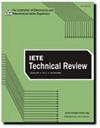A Modified Ant Colony Optimization Algorithm with Pheromone Mutations for Dynamic Travelling Salesman Problem
IF 1.8
4区 计算机科学
Q2 ENGINEERING, ELECTRICAL & ELECTRONIC
引用次数: 1
Abstract
Ant Colony Optimization (ACO) is an algorithm based on Meta-heuristics and swarm intelligence, taking inspiration from the exploring behavior of social insects like ants. Some very challenging optimization problems, like the vehicle routing problem, have been solved by Ant colony optimization. But, the Standard ACO algorithm has problems like trapping in local optimum. This paper discusses an improved version of the ACO algorithm, known as Modified ACO (M-ACO). The main motivation of the proposed algorithm is to use pheromone mutation techniques, such as swap and random, in dynamic environments, to overcome the problems of standard ACO and solve the Travelling Salesman Problem, which is a well-known NP-hard problem. Mutation allows better searching and exploring in other areas, for better results. Also, the exploitation is increased that uses local information to search local regions more intensively for finding minimum distance and increasing the rate of convergence. Evaporation-based Ant colony optimization (E-ACO) framework and population-based ant colony optimization (P-ACO) framework are the two groups into which the algorithms under study are separated. Both frameworks are evaluated on dynamic environments produced using TSPLIB base instances and updated for pheromone values using mutation technique. Experiments and Statistical tests were conducted on the TSPLIB datasets such as pr439 and lin318, in dynamic environments and on comparing ACO with M-ACO and P-ACO, better results were obtained for M-ACO and P-ACO. Metrics like offline have been considered to measure algorithm performance and behavior.求解动态旅行商问题的信息素变异蚁群优化算法
本文章由计算机程序翻译,如有差异,请以英文原文为准。
求助全文
约1分钟内获得全文
求助全文
来源期刊

IETE Technical Review
工程技术-电信学
CiteScore
5.70
自引率
4.20%
发文量
48
审稿时长
9 months
期刊介绍:
IETE Technical Review is a world leading journal which publishes state-of-the-art review papers and in-depth tutorial papers on current and futuristic technologies in the area of electronics and telecommunications engineering. We also publish original research papers which demonstrate significant advances.
 求助内容:
求助内容: 应助结果提醒方式:
应助结果提醒方式:


